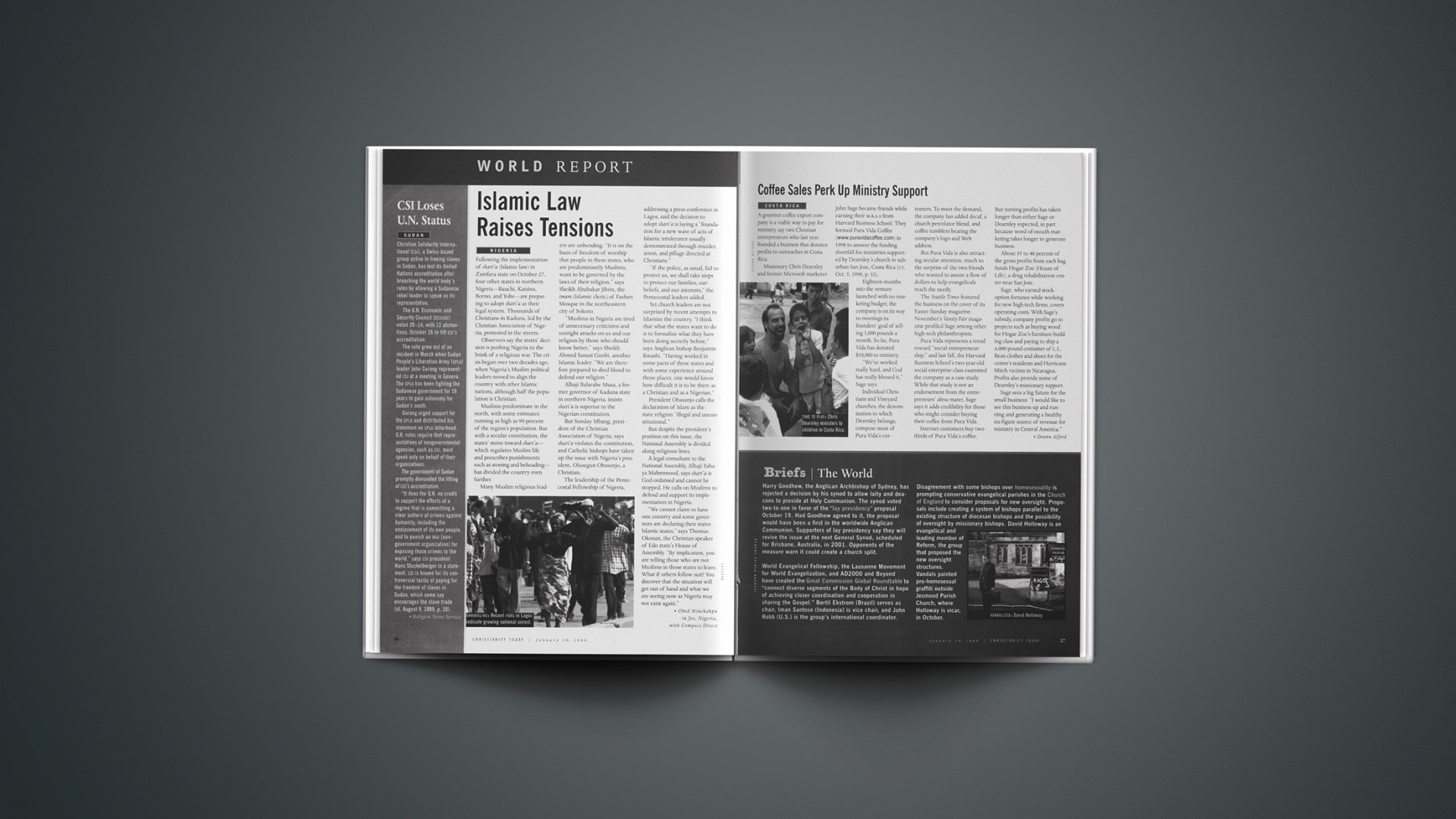Christian Solidarity International (CSI), a Swiss-based group active in freeing slaves in Sudan, has lost its United Nations accreditation after breaching the world body's rules by allowing a Sudanese rebel leader to speak as its representative.
The U.N. Economic and Security Council (ECOSOC) voted 26-14, with 12 abstentions, October 26 to lift CSI's accreditation. The United States voted against the move. CSI had rejected a compromise proposal that would have suspended the accreditation for only three years.
The vote grew out of an incident in March when Sudan People's Liberation Army (SPLA) leader John Garang represented CSI at a meeting in Geneva. The SPLA has been fighting the Sudanese government for 16 years to gain autonomy for mostly Christian and animist tribes living in Sudan's south.
Garang used the occasion to urge support for the SPLA and distributed his statement on SPLA letterhead. U.N. rules require that representatives of nongovernmental agencies, such as CSI, must speak only on behalf of their organizations.
The government of Sudan promptly demanded the lifting of accreditation that allowed CSI to participate in meetings, make statements, raise issues, and submit reports to all bodies associated with ECOSOC, a key U.N. body.
"It does the U.N. no credit to support the efforts of a regime that is committing a clear pattern of crimes against humanity, including the enslavement of its own people, and to punish an ngo [non-government organization] for exposing those crimes to the world," says CSI president Hans Stuckelberger in a statement. CSI is known for its controversial tactic of paying for the freedom of slaves in Sudan, which some say encourages the slave trade.
Related Elsewhere
See our print magazine's August 9 cover story, "Slave Redemption | Americans are becoming instant abolitionists. But is the movement backfiring?"
The English Christian Solidarity International Web site has no apparent information losing its consultative status. However, for more information, check out the Global Policy Forum's area devoted to the controversy.
Copyright © 2000 Christianity Today. Click for reprint information.










